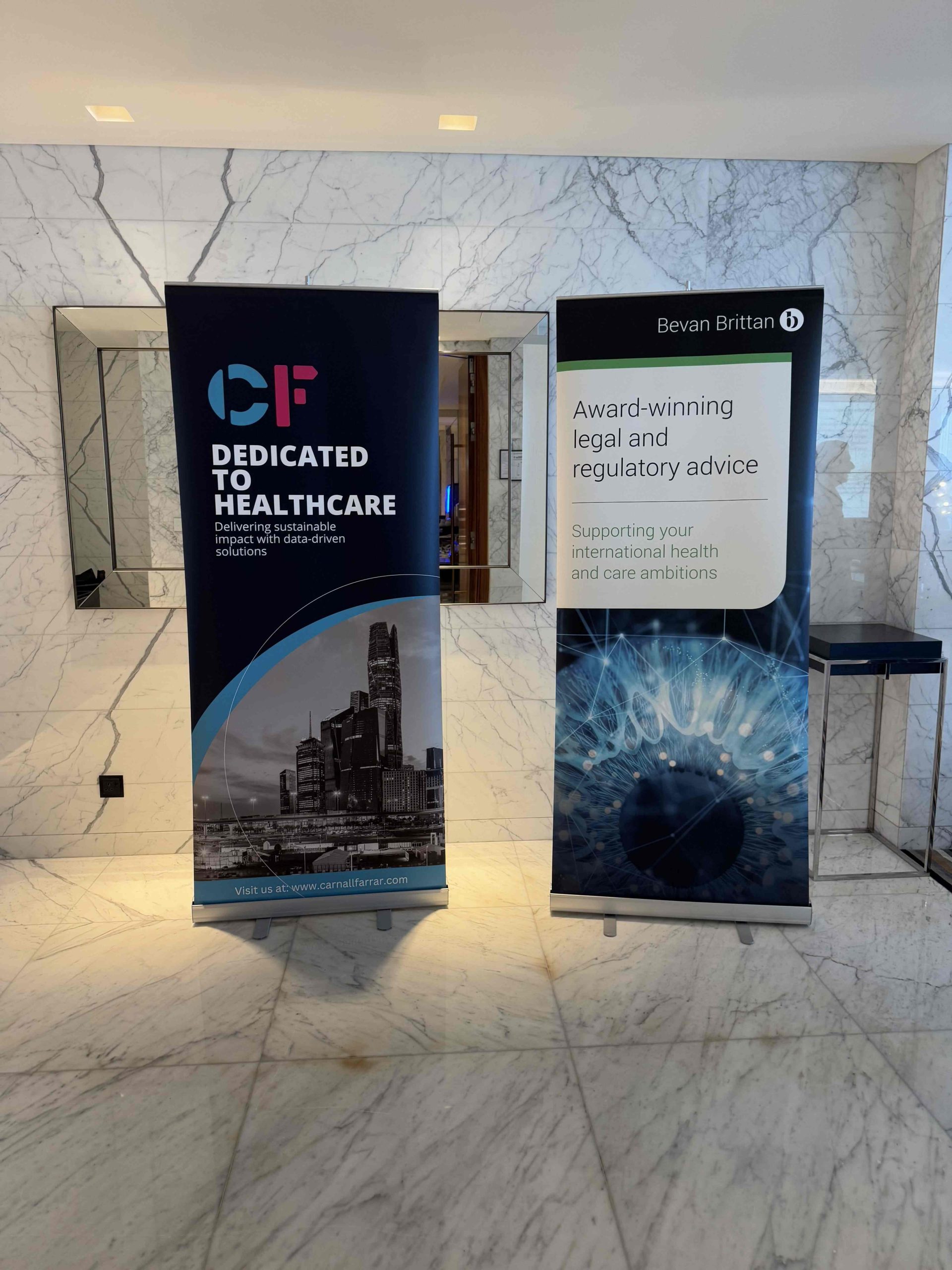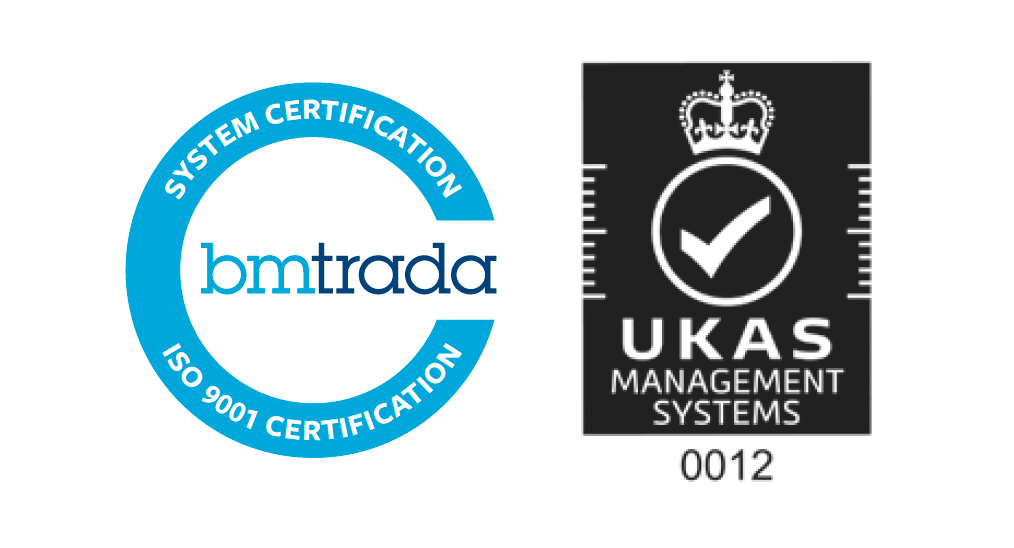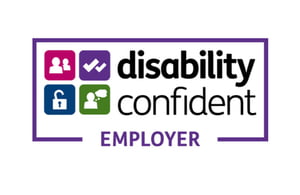CF and Bevan Brittan’s executive roundtable at Arab Health 2025 considered how healthcare innovation travels across borders and systems and the conditions required for ideas and technologies to flourish.
Arab Health 2025 was a living, breathing monument to healthcare innovation. Walking the sprawling exhibition halls attendees are confronted by the latest technologies, equipment, devices and concepts. For many health systems, however, there is a disconnect between this Brave New World and the reality of the pressures facing providers. Rolling out technologies and service innovations is notoriously difficult in healthcare with rising demand, soaring costs and political pressures often dominating the time of healthcare leaders. Radical change is needed but the day-to-day is proving inescapable.
Against this backdrop of accelerating advances and increasing complexity, CF partnered with law firm Bevan Brittan to bring together innovators, executives and leaders from a wide range of nations to share insights on how healthcare innovation can lead to true transformation.
CF’s CEO Hannah Farrar provided an opening address where she outlined the major forces shaping health systems globally, before participants compared experiences across different geographies, reimbursement & regulatory systems and cultural contexts.

The Innovator’s Dilemma
Despite the variances in experiences and opinions, one observation cut through: healthcare does not have an innovation problem; it has an adoption problem. Health systems are essentially in a constant state of forced innovation, with rising demand, shifting patient expectations and scarcity of resources necessitating the health workforce to do more with less just to stand still. Health leaders are not allocating sufficient resources to realize their benefits and legacy reimbursement models reward maintaining the status quo over disruption. Fire-fighting is still dampening entrepreneurial zeal.
Participants in the discussion were also laser-focused on the true meaning of innovation in healthcare, with the distinction between creating something new versus the adoption and integration of existing solutions at the heart of the challenge. Systemic complexities are often the biggest barriers to healthcare’s problems – but they can’t be entirely to blame, agreed the panel. Innovators must adapt to the environments they operate in. Innovation in isolation is of little value and true transformation requires aligning incentives, engaging clinicians and addressing cultural barriers.
Moving from reactive to proactive care
Despite these challenges there are many reasons to be excited. The shift to value-based care and population healthcare management models are helping reactive systems move their focus towards prevention and personalized care, enabled by increasingly sophisticated advanced technologies such as AI. The GCC region is also an area of great potential for innovation with its openness to global perspectives serving as a model for other health systems.
What cuts across every geography and system, however, is the need to consider the human side of any disruptive innovation. Technology and data may be key to unlocking value in a system, but it relies on the alignment of multiple layers of individuals, who require leadership, education and training to ensure successful implementation.
In addition to incentivizing clinicians, wider workforce challenges in healthcare innovation include training staff on new technologies, managing cultural resistance, preventing clinician burnout, fostering interdisciplinary collaboration, and adopting flexible workforce models. These factors together with an emphasis on legal compliance, data security, and leadership development is essential to drive change while ensuring ethical, effective, and sustainable innovation adoption.
Likewise, health systems must change to become better purchasers of innovation. Procurement process and funding mechanisms are critical factors in the adoption of innovation and the survival of early-stage companies. Innovation in healthcare is often supported through grant funding or centralized pots of money but the panel argued that for businesses to scale healthcare providers need to be able purchase solutions at the point of need.
Global expertise, regional presence
CF is committed to supporting clients across the GCC and its fast-developing healthcare systems and in April we’re delighted to launch our new offices in Riyadh. If you would like to discuss our work as dedicated healthcare experts and how to make healthcare innovation stick in your system please get in touch.
Both the CF and Bevan Brittan teams appreciated the insights and experience of our global panel and here are five key insights synthesized from the discussion. We look forward to continuing the conversation.
5 key insights from the panel
ANALYSIS: Bevan Brittan
Arab Health 2025 highlighted the tension between rapid healthcare innovation and the practical, regulatory, and commercial barriers to adoption. While cutting-edge technologies continue to emerge at pace, their integration into health systems remains hindered by legacy reimbursement models, procurement complexities, and regulatory uncertainty. Key discussions focused on the need for robust governance frameworks to facilitate innovation and adoption without compromising safety. Regulatory alignment, both domestically and across borders, is essential to ensuring scalable adoption. Health systems must also evolve procurement processes to streamline purchasing of innovative solutions, reducing reliance on short-term grants. The shift towards value-based care and digital transformation brings further regulatory considerations, including data privacy, liability frameworks, and clinician incentives and related workforce considerations, more broadly. For innovation to succeed, legal and commercial structures must support seamless integration, ensuring solutions are both compliant and commercially viable as well as providing benefit to patients. As healthcare evolves, an appropriate governance framework and a proactive regulatory approach will be critical in bridging the gap between innovation and implementation.
Bevan Brittan’s reputation as a leading Health & Care law firm has taken us across the globe. We work with a wide-range of clients including independent sector providers, investors and NHS organizations on a multitude of health projects. Our in-depth knowledge of the intricacies that arise and the solutions we can provide when you are expanding overseas are world-class.
We have established our Global Health & Care expertise through international assignments for a wide-range of clients, including some of the first overseas arrangements involving NHS organizations and independent sector operators and providers of med tech and digital services. As well as advising on the legal and regulatory aspects of internationalization, we will share our strategic, managerial, commercial, reputational and operational expertise with you.
ANALYSIS: CF
Bridging the gap between innovation and adoption is critical for health systems globally and was brought into sharp focus during our discussion at Arab Health 2025. Technology has the capacity to dazzle – as evidenced by the vibrant exhibition halls and product demonstrations – but adoption is a daily challenge requiring expertise, leadership and alignment across all stakeholders. Health systems are being reshaped across the region as growing demand and finite resources require a shift from reactive to proactive care, emphasizing prevention and personalized treatment. Successfully navigating this journey is challenging, with systemic complexities and resource allocation issues presenting obstacles for all leaders. The GCC region, however, with its openness to global perspectives, exemplifies the potential for innovation to transform services – but there is much still to be done. Moving forward, healthcare systems must evolve to become better purchasers of innovation, ensuring that procurement processes and funding mechanisms do not stand in the way of implementing true change. CF remains committed to driving this change and supporting health and healthcare across the GCC.
To find out more about our services in the Middle East, click here.


